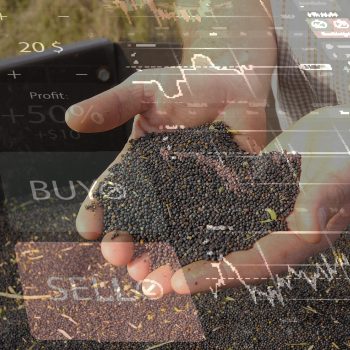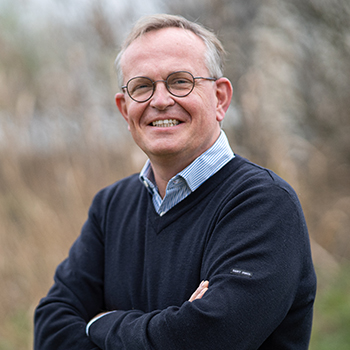Over the next five years, Saipol’s growth will be driven by optimising the supply of raw materials and by improving the value of the products. Speciality markets such as energy oils and ingredients are booming. The demand for concentrated vegetable protein remains strong. Jean-Philippe Penet, Trading & Commerce Director, worked on this repositioning. A trader by passion, with his team he has written a new chapter, which he admits is “exciting and conquering”.

Agricultural supply and demand, the world markets, have long been the playground of Jean-Philippe Penet, Trading & Commerce Director at Saipol. Moreover, he says with great pride, “that he became familiar with commodities at a very early stage”, during his end-of-study internship as an agricultural engineer, and “did not want to do any other job”. Getting out in front, managing risks, negotiating purchase and sale contracts: all these operations were part of his daily routine until 2017. At that time, Saipol had to embark on a strategic transformation plan to return to profit. Competition from palm oil and soybean biodiesel, the low value of first generation biodiesel from rapeseed, with a price aligned with the price of oil, and the elimination of the partial exemption from domestic consumption tax (DCT) have weakened the company.
Seed, meal, oil and diesel prices were no longer to be the only figures to be used. In order to move from a very trading approach to one focused on higher value-added speciality products, he had to become familiar with economic performance indicators. “I was able to put down on paper what I had in my head in order to give confidence indicators to the financial teams. ” And he admits to having the satisfaction of turning the page in 2021.
Securing saipol’s supply, eliminating risk and capturing value
“We are finally getting our heads above water”, he says. “We are really in a change of cycle. For the last four years we have been wondering what we could do with our production. For the next five, the question will be who can we serve and how can we choose from our many strategic markets? ” The challenge for processing plants is to control and secure supplies in order to meet the growing demand for oil and meal, excluding soy. It is used for food and energy purposes. “We must have control over the raw materials we will need tomorrow”, he says. The solution is to juggle with all the sources.” French seeds from sustainable farming practices are traded via our OleoZE solution.. They are used in the manufacture of low greenhouse gas (GHG) fuels, Oleo100 and in the production of pre-treated oils for biorefineries. “But the decline in rapeseed surfaces in France leads us to buy protein-rich Canadian canola, for example”, he adds. “Our entire supply chain enables us to satisfy all markets and projects!”
Managing change
With this new, more constructive stage, Jean-Philippe Penet is also moving upward. “I am less on the front line, and become more involved in management and strategy”, he explains. He is handing over duties to the commercial managers and the crushing, esterification and refining divisions. Being well supported in negotiating the transition of Saipol’s production model, he admits to having the satisfaction of seeing his team grow, while at the same time being convinced that he has the best team on the European market.

“Our challenge for 2025? To secure our raw material supply to meet all demands for vegetable oils and proteins”.


